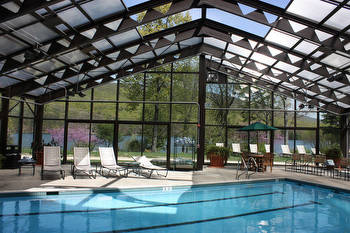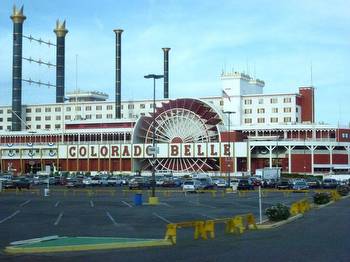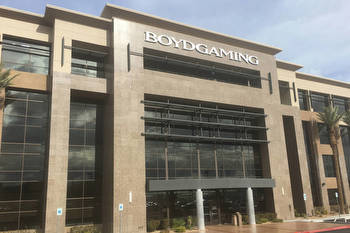Golden Entertainment reports revenue up 14% in record Q1; no signs of slowdown in Q2

Nevada-based gaming company Golden Entertainmentannounced Thursday its results for the first quarter of 2022, having registered a revenue of $273.6 million, which represents a 14% rise from the same period in 2021. Net income for the first quarter was $36.1 million, while Adjusted EBITDA was $67.3 million, the latter showing an increase of 13% year-over-year. Momentum has now extended to Q2.
“Our record first-quarter results reflect a continuation of the strong financial performance we delivered over 2021," said Golden Entertainment’s Chairman and Chief Executive Officer, Blake Sartini. "Our strong cash flow has allowed us to reduce debt while returning capital to shareholders through our share repurchase program."
The company also broke down its numbers for its Nevada Casino resorts, which saw revenue of $96.4 million compared to $74.8 million for the first quarter of 2021. Adjusted EBITDA was $33.6 million, compared to $26.7 million year-over-year. The Adjusted EBITDA margin was slightly down this year to 35%, in contrast with Q1 2021’s 36% margin.
"Since the beginning of 2021 we have reduced indebtedness by $158 million and since December 2021 we have also repurchased more than $25 million of our common stock," added Sartini. "We expect to remain focused on returning capital to shareholders as the strength in our business continues".
For Nevada locals casinos, this year’s first-quarter revenue was $39.9 million, compared to $38.5 million in 2021. Adjusted EBITDA was $20 million, a rise from 2021’s $19.6 million. Adjusted EBITDA margin was 50%.
For the company's Maryland casino resort -Rocky Gap Resort Casino-revenues were $17.9 million, compared to $16.1 million in 2021. Adjusted EBITDA was $5.6 million, compared to $4.9 million last year. Adjusted EBITDA margin was 31%.
Revenues for Distributed Gaming -including gaming in the company’s branded taverns- were $119.2 million, compared to $109.9 million for the first quarter of 2021. Adjusted EBITDA was $22.1 million, with an Adjusted EBITDA margin of 18%.
The company exceeded the financial performance for all operating segments compared to last year’s first-quarter report. It has also repaid $25 million of term loan borrowings and repurchased over $15 million of common stock in the quarter. During the same period, the Board of Directors reauthorized a $50 million share repurchase program.
Golden Entertainment owns and operates an entertainment portfolio that consists of gaming assets that focus on casino and distributed gaming operations, and in total operates over 16,900 slots, 120 table games, and 6,200 hotel rooms in ten casinos: nine in Southern Nevada, and one in Maryland.
Through its distributed gaming business in Nevada and Montana, Golden Entertainment operates video gaming devices at nearly 1,100 locations and owns 65 traditional taverns in Nevada. Golden Entertainment is also licensed in Illinois and Pennsylvania to operate video gaming terminals.
The parent company of The Strat, Arizona Charlie’s and the PT’s Taverns franchise further said it has started out the second quarter the way the first quarter left off. “Right now, we see no sign of a slowdown in any of our properties,” Sartini told investors in a call, according to Las Vegas Review-Journal. The Strat is poised for cash flow growth and has been seeing occupancy of about 75%.
Chief Marketing Officer Brad Goldberg told the cited source The Strat is a magnet with "international appeal" because of its prominent profile on Las Vegas Boulevard. And while the venue has no convention facilities of its own, the hotel is a draw to convention and trade show attendees because of its proximity to the Las Vegas Convention Center.
Additionally, Goldberg said announced there are no current plans to reopen the Colorado Belle resort on the Colorado River, a 1,150-room hotel modeled to look like a Mississippi River steamboat that was shuttered in March 2020 when Gov. Steve Sisolak ordered emergency closures to stop the spread of COVID-19.































